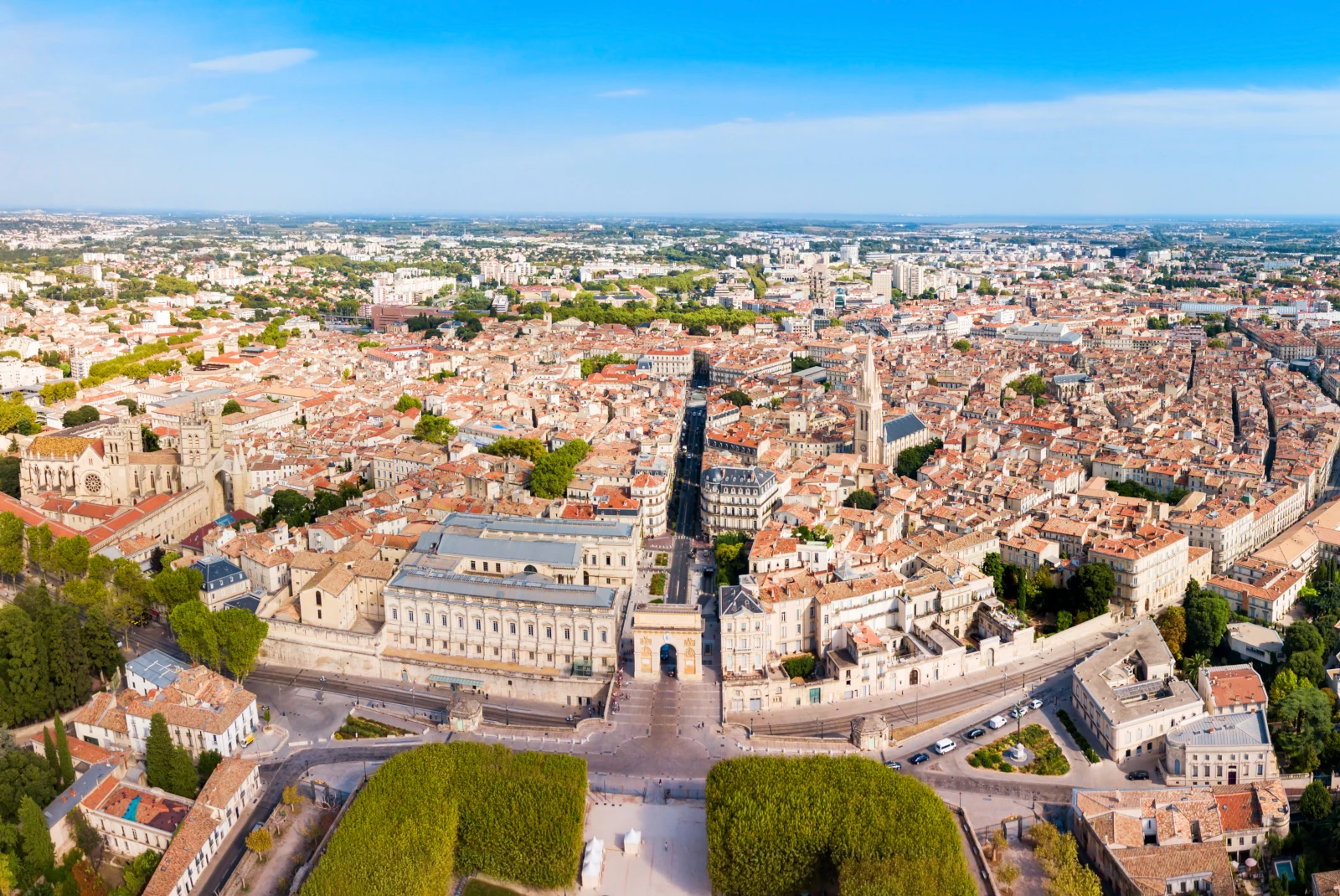Is “La surdouée” France’s new geothermal powerhouse? The presence in the city of several projects aimed at harnessing the heat of the subsoil would certainly suggest so.
Montpellier seems to be well on the way to carbon neutrality by 2050!
At the beginning of May 2024, Michaël Delafosse, president of Montpellier Métropole and mayor of Montpellier, inaugurated France’s largest geothermal power plant, ” one of the most important geothermal sites in the country ” according to him.
Cambacérès: the choice of geothermal energy on groundwater
Located in the new Cambacérès district, dedicated to innovation (see inset), this facility operates with two boreholes pumping around 300m3 of water per hour from an underground water table 180 meters below ground.
The system includes reversible heat pumps capable of producing heat in winter (heating) and cooling in summer (air-conditioning). Hot and cold water are distributed by underground networks supplying the 450,000m2 of buildings.
The pumped water is then returned in its entirety to the groundwater table, with no change to its natural characteristics or temperature over the course of a year. ” We’re using a process that has no impact on nature, with water in a closed circuit,” explains Frédéric Cauvin, deputy general manager in charge of energy at Altémed, the Montpellier Metropolitan Council’s developer who managed the project.
Ultimately, the plant should prevent the emission of 1,250 tonnes of CO2 every year (5 times less than an electric system and 8 times less than a gas system). Winner of the national “New Emerging Technology” call for projects, it cost 17.5 million euros and was financed to the tune of 4.6 million euros byADEME, the French agency for ecological transition.
Cambacérès: a real estate project dedicated to innovation and digital professions
Located close to the A9 motorway, between Odysseum and the Sud de France train station, and backing onto the green lung of the Parc de la Mogère, the new Cambacérès district covers 42 hectares. This site, ” resolutely committed to the energy transition “, is destined to become a reference center for the digital economy. It will host 450,000m2 of buildings for service sector companies (digital, innovation, banking, etc.) and higher education establishments, including an innovation hall of over 8,000 m2 incubating digital start-ups associated with the French Tech Méditerranée.
Geothermal probes at Agro
Another geothermal project, this time on the site of theInstitut d’Agronomie de Montpellier, is currently under construction. This time, the plant won’t use groundwater, but geothermal probes.
A total of 44 of these will be installed at a depth of 190 metres to capture the ground temperature of 14°C all year round. The aim of the installation is to cover 90% of the heating needs and 76% of the air-conditioning needs of the Gaillarde Campus (20 hectares including 650 student studios, classrooms for 1,700 students and numerous research labs), i.e. over 9,000 MWh/year.
The project is expected to halve the carbon footprint of heating and air-conditioning emissions, which until now have been covered by fuel oil.
A third geothermal plant, also on a probe field, was commissioned at the end of 2018, on the initiative of the Conseil départemental de l’Hérault, to improve the energy performance of the Hôtel de département, the Domaine d’Ô, the Pierresvives Archives and the Maison départementale des sports in Montpellier. The plant operates using 48 probes placed at a depth of 150 metres, where the temperature is a constant 17°C. The probes absorb the heat, which is then recovered by a reversible heat pump that supplies the buildings with heat in winter and cooling in summer. The project avoids almost 300 tonnes of CO2 emissions every year, and generates energy savings of 26%.
Montpellier 2 University in exploratory phase
In addition, an old 160-meter-deep borehole producing water at 30°C is present on the Triolet campus. It is thought to correspond to a thermal anomaly resulting from deep water upwelling through a layer of limestone trapped between impermeable formations. A number of researchers are looking into the matter through the TrioThermo project, which could lead to the installation of a geothermal plant on the campus.
To date, geothermal heat production accounts for just 1% of total heat production in France. These promising first steps on the road to energy transition could make Montpellier an exemplary city!


